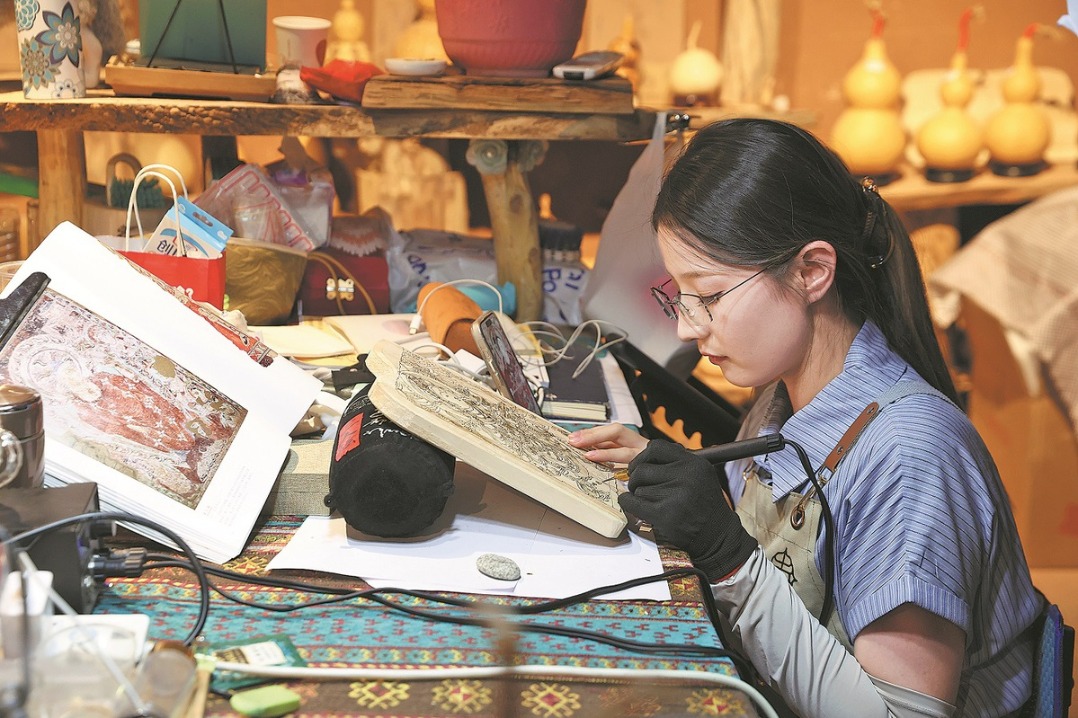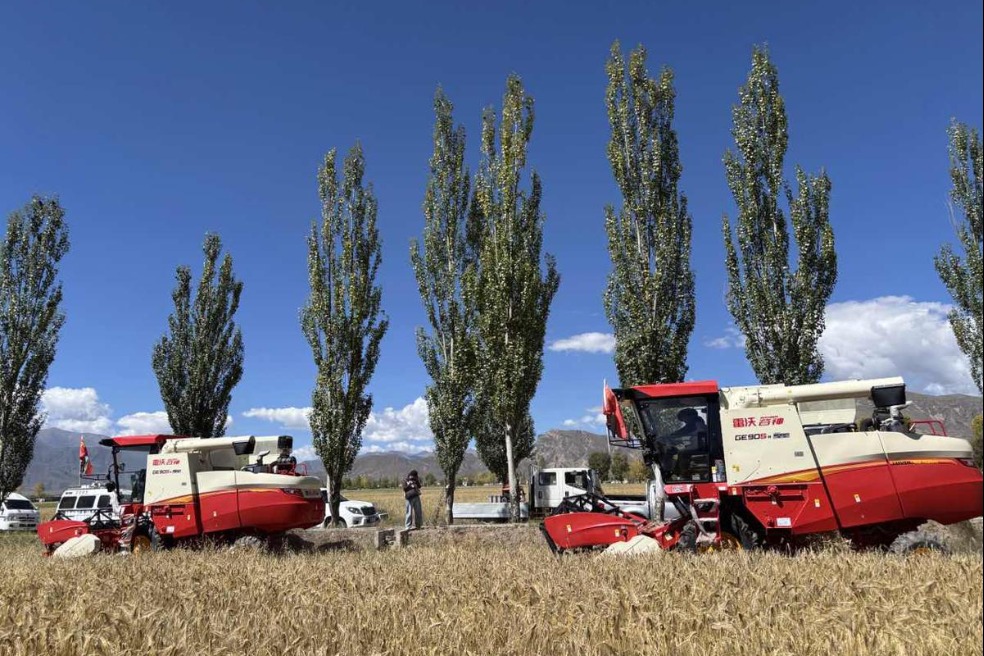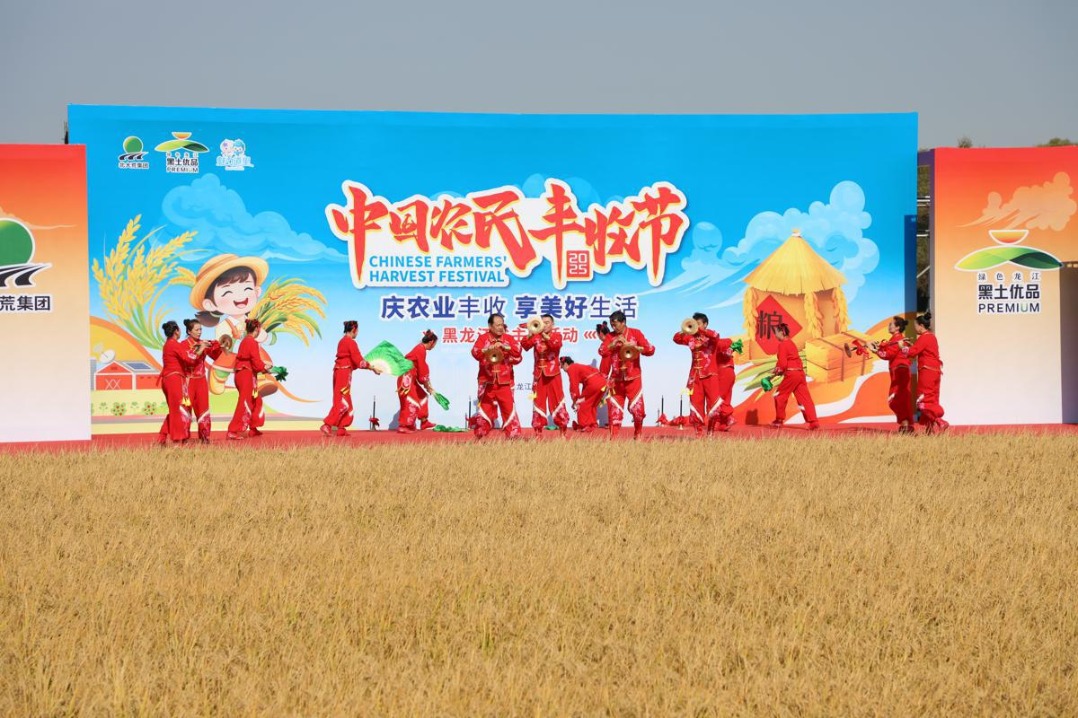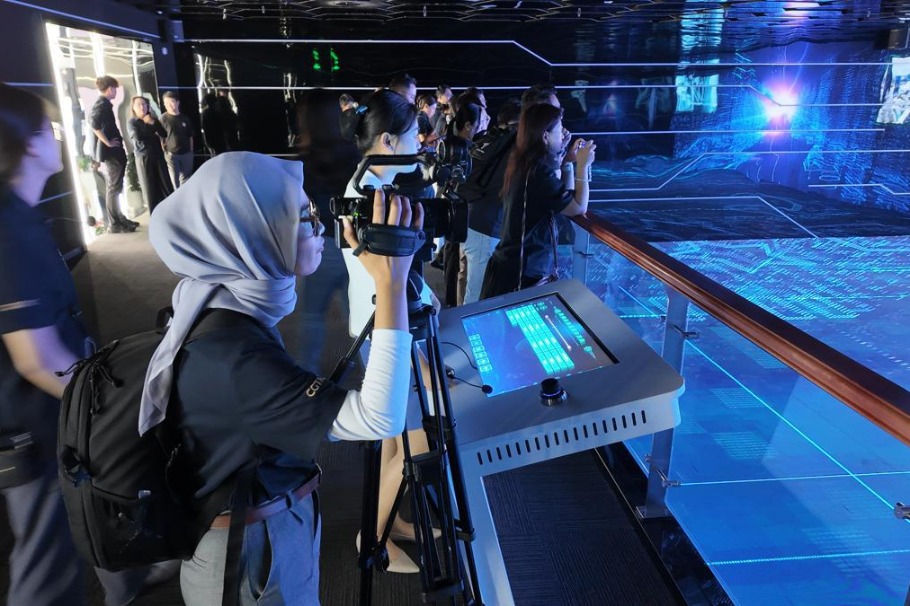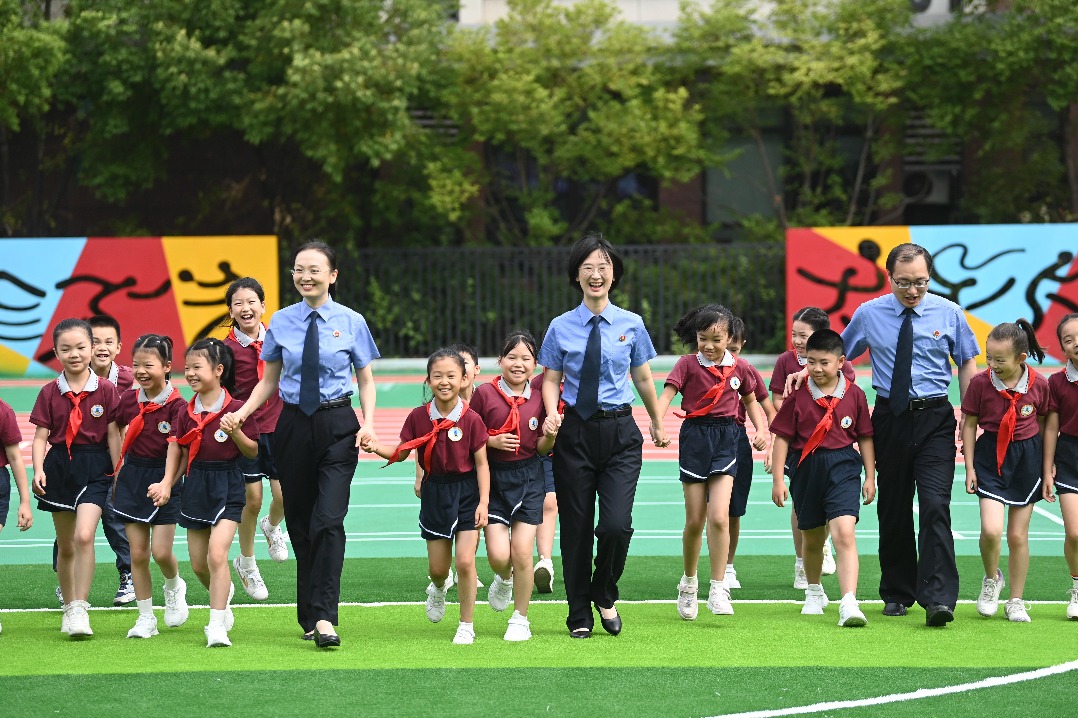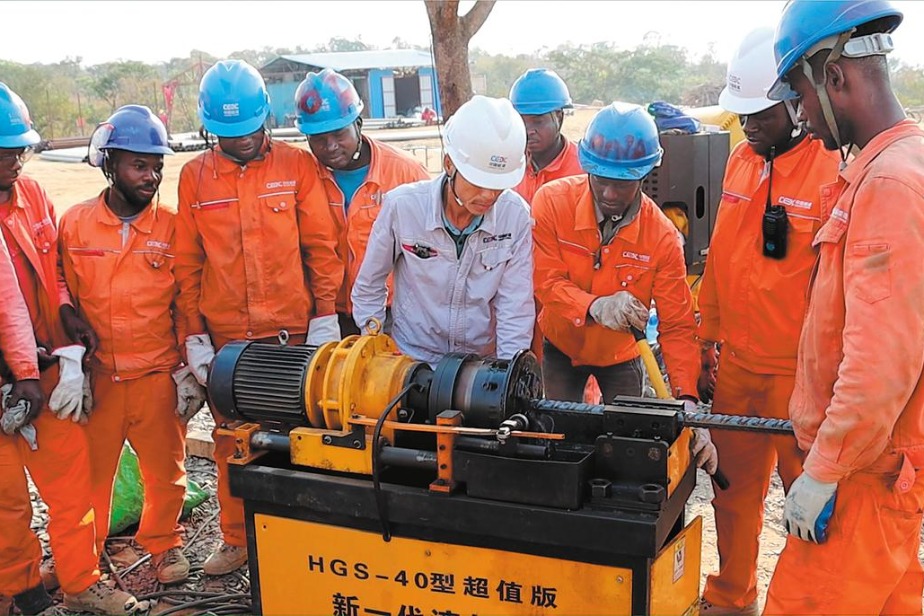Shanghai university benefits from intl collaboration

Shanghai Ocean University is reaping results from its move to expand international collaboration on fisheries, which is aimed at improving livelihoods and supporting sustainable development in several countries.
In Cambodia, the university has promoted rice-fish and rice-shrimp farming since 2021. Focusing on the giant freshwater prawn, the team has demonstrated, developed and refined farming techniques suited to local conditions.
With the team's support, 38 demonstration households have been established and the prawns' survival rate has risen from 40 percent to 78 percent, helping 42 farming households move out of poverty, according to the team.
Recognizing that local talent is key to Cambodia's sustainable development, the university has also trained farmers and attracted Cambodian students to study in China. Since 2024, 11 aquaculture students from Cambodia have been recruited to study in Shanghai on scholarships.
Many Cambodian graduates have returned home to work in agriculture. The team has also carried out 17 training programs for more than 430 farmers and distributed hundreds of technical manuals to farmers and technicians.
Matine Chhorn, a 28-year-old doctoral student from Cambodia, is studying aquaculture and genetic breeding at the university. He said the China-Cambodia friendship has always been close and based on mutual trust and cooperation.
"China has brought a lot of experts to my country. One clear example is the Lancang-Mekong Cooperation, which not only strengthens regional ties but also supports education, research and sustainable development," Chhorn said.
The giant freshwater prawn has brought new opportunities for farmers and contributed to rural development in Cambodia. Through his studies in China, Chhorn said he is gaining knowledge and skills he hopes to apply to farming practices back home.
"The Lancang-Mekong project is not just about development, but also about people-to-people friendship and sharing a better future together," he said.
As China and Cambodia step up construction of the Fish and Rice Corridor, more young Cambodians are joining. Among them is 25-year-old Aily Chhour, who is pursuing a master's degree in applied economics at the university.
She helped translate a comprehensive guidance book on China-Cambodia rice-fish farming, which aims to improve local farming skills.
"This translated book helps academic communication between the two nations. More importantly, it can help Cambodians who do not understand Chinese to gain the knowledge they need and live a better life out of poverty and famine. I felt very proud to be part of it," she said.
Chhour is now working on a paper about international trade in agriculture. She said she hopes to contribute to her country's development and deepen China-Cambodia cooperation when she returns home.
In Indonesia, Shanghai Ocean University has supported fishery development since 2022, building an offshore marine ranch that deployed 650 cubic meters of artificial reefs.
Experts from both countries have also jointly researched, designed and optimized five types of artificial reef structures, which play a key role in restoring and protecting coral reefs and fishery resources.
The project addresses the degradation of Indonesia's biological resources — particularly its declining fishery stocks — as well as the impact of climate change on coastal coral reef communities, said Lin Dongming, a senior engineer at the university's College of Marine Living Resource Sciences and Management.
"The marine ranch focuses on restoring coastal ecosystems, protecting fishery resources and enabling sustainable use of marine biological resources. We have seen very positive results, as fishery resources are recovering and local fishermen are having much better harvests," Lin said.
Looking ahead, Lin said his team is exploring the integration of the ecosystem and socioeconomic development, and aims to build collaborative models that benefit more countries.
"We have signed agreements of cooperation with more than 180 institutions across the globe. Taking full advantage of our expertise in aquaculture, we are expecting to share our knowledge and skills with the world and contribute to global sustainable fishery and agricultural development," said Li Juanying, director of the university's international exchange office.
wangxin2@chinadaily.com.cn
- Shanghai university benefits from intl collaboration
- Festival shows how smart tech is transforming modern farming
- Integrated land-sea governance mooted at coastal forum
- Typhoon Ragasa weakens after landfall in Guangdong
- Grasslands' wealth unlocked by push for high-quality products
- Xi: Xinjiang must fully tap strengths
















